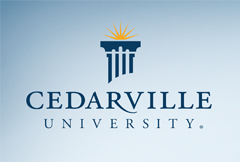Keywords
Kant, ethics, genetics
Abstract
In an era where new genetic and reproductive technologies are increasing, ethical concerns continue to grow as well. Preimplantation genetic diagnosis (PGD) is a technique used in addition to in vitro fertilization (IVF) to screen embryos for genetic abnormalities and either discard them or place them in the uterus. The emergence of new uses for PGD has made PGD a frequent target of ethical commentary and speculation about a future of greatly increased genetic selection and manipulation of offspring (Robertson, 2003). Although PGD is not currently widespread, its potential for abuse signifies a need for serious ethical analysis. Immanuel Kant was an 18th Century philosopher, whose theories still influence modern ethics. In this paper, I will examine the ethical issues relating to PGD, describe its benefits, analyze it through a Kantian ethical framework, and discuss my own position. Although my worldview differs from that of Kant, we both hold the same position in regards to PGD and view it as morally wrong. PGD is a procedure based on IVF, where embryos are screened for a variety of genetic diseases, including sex-linked disorders, single gene defects, and chromosomal defects. Defective embryos are discarded, while genetically normal embryos are selected for re-implantation into the uterus. This decreases the likelihood of having a miscarriage or of giving birth to a child with a birth defect. Some parents can also use PGD to select their child’s gender.
DOI
10.15385/jce.2013.12.2.1
Recommended Citation
Delk, Emily
(2013)
"A Kantian Ethical Analysis of Preimplantation Genetic Diagnosis,"
CedarEthics: A Journal of Critical Thinking in Bioethics: Vol. 12:
No.
2, Article 1.
DOI: 10.15385/jce.2013.12.2.1
Available at:
https://digitalcommons.cedarville.edu/cedarethics/vol12/iss2/1
Creative Commons License

This work is licensed under a Creative Commons Attribution-Noncommercial-No Derivative Works 3.0 License.
Disclaimer
The CedarCommons repository provides a publication platform for fully open access journals, which means that all articles are available on the Internet to all users immediately upon publication. However, the opinions and sentiments expressed by the authors of articles published in our journals do not necessarily indicate the endorsement or reflect the views of Digital Services, the Centennial Library, or Cedarville University and its employees. The authors are solely responsible for the content of their work. Please address questions to the Digital Services staff.

